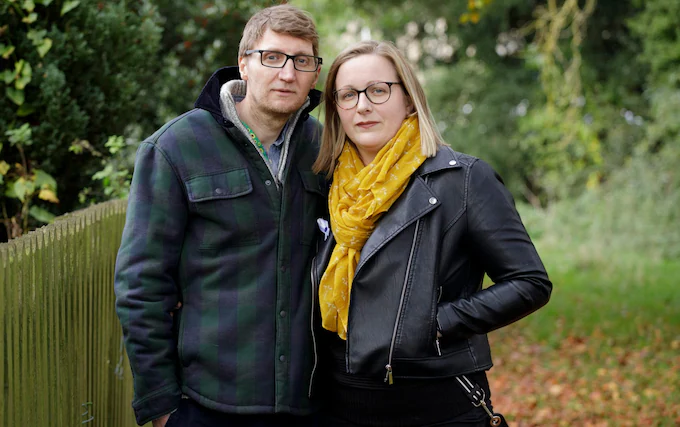AstraZeneca has admitted for the first time in court documents that its Covid vaccine can cause a rare side effect, in an apparent about-turn that could pave the way for a multi-million pound legal payout.
The pharmaceutical giant is being sued in a class action over claims that its vaccine, developed with the University of Oxford, caused death and serious injury in dozens of cases.
Lawyers argue the vaccine produced a side effect which has had a devastating effect on a small number of families.
The first case was lodged last year by Jamie Scott, a father of two, who was left with a permanent brain injury after developing a blood clot and a bleed on the brain that has prevented him from working after he received the vaccine in April 2021.
The hospital called his wife three times to tell her that her husband was going to die.
Covid-19 vaccine became a big issue in the midst of the pandemic as the global order made it mandatory for essentials, including travels.
Governments world over rushed into passing new health laws that made it compulsory for all adults to take the jabs as pharmaceutical industries fell over themselves with their jabs.
Pharma admission
AstraZeneca is contesting the claims but has accepted, in a legal document submitted to the High Court in February, that its Covid vaccine “can, in very rare cases, cause TTS”.
TTS – which stands for Thrombosis with Thrombocytopenia Syndrome – causes people to have blood clots and a low blood platelet count.
Fifty-one cases have been lodged in the High Court, with victims and grieving relatives seeking damages estimated to be worth up to £100 million.
AstraZeneca’s admission – made in a legal defence to Mr Scott’s High Court claim – follows intense legal wrangling. It could lead to payouts if the drug firm accepts that the vaccine was the cause of serious illness and death in specific legal cases. The Government has pledged to underwrite AstraZeneca’s legal bills.
 Jamie Scott was left with a permanent brain injury after having a haemorrhage the day after the Covid vaccine | Courtesy-Telegraph/Andrew Fox
Jamie Scott was left with a permanent brain injury after having a haemorrhage the day after the Covid vaccine | Courtesy-Telegraph/Andrew Fox
In a letter of response sent in May 2023, AstraZeneca told lawyers for Mr Scott that “we do not accept that TTS is caused by the vaccine at a generic level”.
But in the legal document submitted to the High Court in February, AstraZeneca said: “It is admitted that the AZ vaccine can, in very rare cases, cause TTS. The causal mechanism is not known.
“Further, TTS can also occur in the absence of the AZ vaccine (or any vaccine). Causation in any individual case will be a matter for expert evidence.”
Lawyers argue that the AstraZeneca-Oxford vaccine is “defective” and that its efficacy has been “vastly overstated” – claims AstraZeneca strongly denies.
Scientists first identified a link between the vaccine and a new illness called vaccine-induced immune thrombocytopenia and thrombosis (VITT) as early as March 2021, shortly after the Covid-19 vaccine rollout began.
Lawyers for the claimants argue that VITT is a subset of TTS, although AstraZeneca does not appear to recognise the term.
The UK government has indemnified AstraZeneca against any legal action but has so far refused to intervene.
Kate Scott, Mr Scott’s wife, told the Telegraph: “The medical world has acknowledged for a long time that VITT was caused by the vaccine. It’s only AstraZeneca who have questioned whether Jamie’s condition was caused by the jab.
“It’s taken three years for this admission to come. It’s progress, but we would like to see more from them and the Government. It’s time for things to move more quickly.
“I hope their admission means we will be able to sort this out sooner rather than later. We need an apology, fair compensation for our family and other families who have been affected. We have the truth on our side, and we are not going to give up.”
Read more of the original story the Telegraph, UK…
